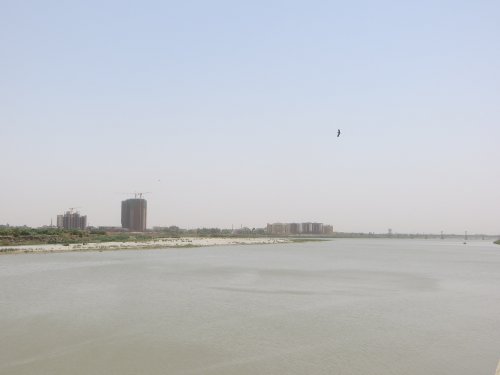The People of Sudan

Sudan was not part of our original itinerary and like all the other countries we have added along the way, it was an amazing surprise and reward to our travels. When we were planning our world trip, we were hesitant to visit Sudan due to issues of safety and political instability. We considered the idea of traveling to Sudan after we were fortunate to meet a Sudanese for the first time while traveling in India. Our encounter with Mohammed was brief and unforgettable. We shared a rickshaw in Mumbai during a short ride to the train station and this trip was enough for us to become friends. In the rickshaw, we introduced ourselves and nationalities. Mohammed talked to us about his master studies in India and we told him about our crazy world trip. He was excited to meet us and encouraged us to visit Sudan, reassuring us that his country was safe and worth seeing. We asked him if the country situation was safe enough to travel by land and he insisted it was. For the first time, the thought of going to Sudan was a possibility. We exchanged emails with the hope of keeping in contact. At the end of the ride, Mohammed insisted on paying the cost of the rickshaw and refused to take money from us. We were surprised and deeply touched by his gesture. Although we had just met, he was treating us with great kindness and generosity. We felt Mohammed was one of a kind and meeting him inspired us to visit his country. Thanks to him we made it to Sudan and discovered that his kindness is a national philosophy and a very special part of their spirit. Sudanese people are as generous and welcoming as Mohammed was with us since the beginning 🙂
Once in Sudan, we continued running with the same luck of our first encounter with Mohammed in Mumbai. In many ways, Sudanese people were ALWAYS wonderful and caring towards us. Sudanese hospitality exceeded all western individualist expectations and standards of courtesy. You can’t believe this type of endless kindness is real and possible until you visit Sudan. We have many beautiful memories of our days there, but just to help you get an idea of how amazing Sudanese people are let us describe a few of their interactions: Immigration officers said “Welcome to Sudan” with a huge smile while checking our passports; a passenger traveling in the same bus bought us bottles of cold water on the way to Khartoum; a restaurant owner said hello and placed an extra fish on our table as a gift while we were having lunch; government employees at the office of tourism invited us to drink tea after completing our photography permit; a woman traveling in the same bus paid for our ride without us even knowing, we didn’t know her and never saw her again; people of all ages constantly offered their genuine help while we were trying to find our way across the country; a taxi driver told us where to take a bus after we explained to him that our budget was not enough to pay for his services. The list of these encounters could continue. During the 8 days in the country, the magic of these memorable human interactions constantly repeated!
Only one thing made us sad about Sudan: the bureaucracy and extreme governmental control. We first had to obtain a visa, $60 USD per person, prior to arriving at the border, which we got in Nairobi, Kenya. Within 3 days of arrival to the country, all foreigners must complete a lengthy and expensive registration process in Khartoum that costs about $40 USD per person. According to the locals, the reason behind this requirement and where the funds go remain unknown. Furthermore, all tourists must be issued a photography permit and even if you have it photography is highly restricted by the government not only for tourists, but for locals too. Purchasing ferry tickets from Wadi Halfa, Sudan to Aswan, Egypt was an odyssey. We waited 5 hours and begged in a window with many other people until finally getting the tickets, but of course there was also an exit tax. The ferry office is managed with the same level of bureaucracy that takes over the entire country. It was frustrating for us to deal with the system in Sudan, because we had to spend many hours of our time complying with their procedures. We can only imagine how powerless Sudanese people may feel in their own country having to deal with so much governmental control and corruption day by day. Some Sudanese we talked with about this issue referred to feeling like prisoners in their own country because the government also places high restrictions for them to travel abroad. They feel freedom does not exist in their country and wish for a change. We admire Sudanese for their capacity to be friendly and kind towards others regardless of all the challenges and frustrations they face. We also wish better political leaders would rise to represent the interest of this amazing community.
